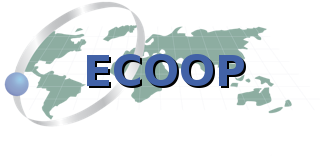Intellectual Merit: The purpose of this INTEROP proposal is to facilitate the deployment of an Integrated Ecosystem Approach (IEA) to management in the Northeast and California Current Large Marine Ecosystems (LMEs). The direct result of the proposed activity will be application-level data and information enhanced communication for developing the consensus networks to define the specific components of interest to support the implementation of NOAA’s Driver-Pressure-State-Impact Response framework (DPSIR) decision framework and the cyberinfrastructure technologies to ensure data interoperability and reuse. This new capability will serve as the essential foundation for the formal synthesis and quantitative analysis of information on relevant natural and socio–economic factors in relation to specified ecosystem management goals which can be applied in other LMEs. The scope of the network includes key stakeholders in four areas: scientists and data providers, agencies, national communities of practice, and decision makers/ policy developers. The network will undertake major activities at the core team working level; technical sessions and focused workshops within each of the stakeholder areas as well as across and among the areas. Integrative activities, aligned with existing community conferences and meeting will provide dissemination and broad engagement opportunities. Also key to the network activities is semantically rich use case development using expertise in semantic web methodologies, especially related to diverse vocabulary needs across the stakeholder areas. These methodologies have been implemented and evaluated in several natural science settings over the past 5- years. Technical expertise in the project team, both funded and via collaboration, covers data repositories, science and management of the environmental systems, assessment, and semantically enabled cyberinfrastructure and data frameworks spanning a large range of (non-specialist) end-use.
Broader Impacts: Explicit in this project is the very broad dissemination of results; the diverse major stakeholders include decision and policy makers both at the agency and government levels as well as agency scientists and managers. The developed semantics based on leveraging existing standard vocabularies is likely to have very broad interest and use and enable extended interoperability across many disciplines. The very nature of open (semantically-enabled) data frameworks is that they receive substantial unintended use with the potential to provide substantial infrastructure improvements for research and education. The potential benefits to society at large in terms of providing a routine and sustainable IEA that is linked to decisions and policy along with the feedbacks to the underlying monitoring and data collection cannot be under estimated. This project is very high on the national agenda: On June 12, 2009 President Obama established a high-level Ocean Policy Task Force to craft the first US national policy for the overall goals of sustainably managing the country's oceans1. The task force, to be led by the Chair of the Presidents Council on Environmental Quality (CEQ), is charged with developing policy framework for a comprehensive, integrated, ecosystem based approach to ocean resource management that addresses conservation, economic activity, user conflict, and sustainable use of ocean, coastal, and Great Lakes. The task force has been given 180 days to complete this task. In his presidential directive on this matter, President Obama specifically recognizes that this new national ocean policy will require new consensus driven, science based decision support networks and tools. This project would provide a robust and sustainable implementation for this directive.

